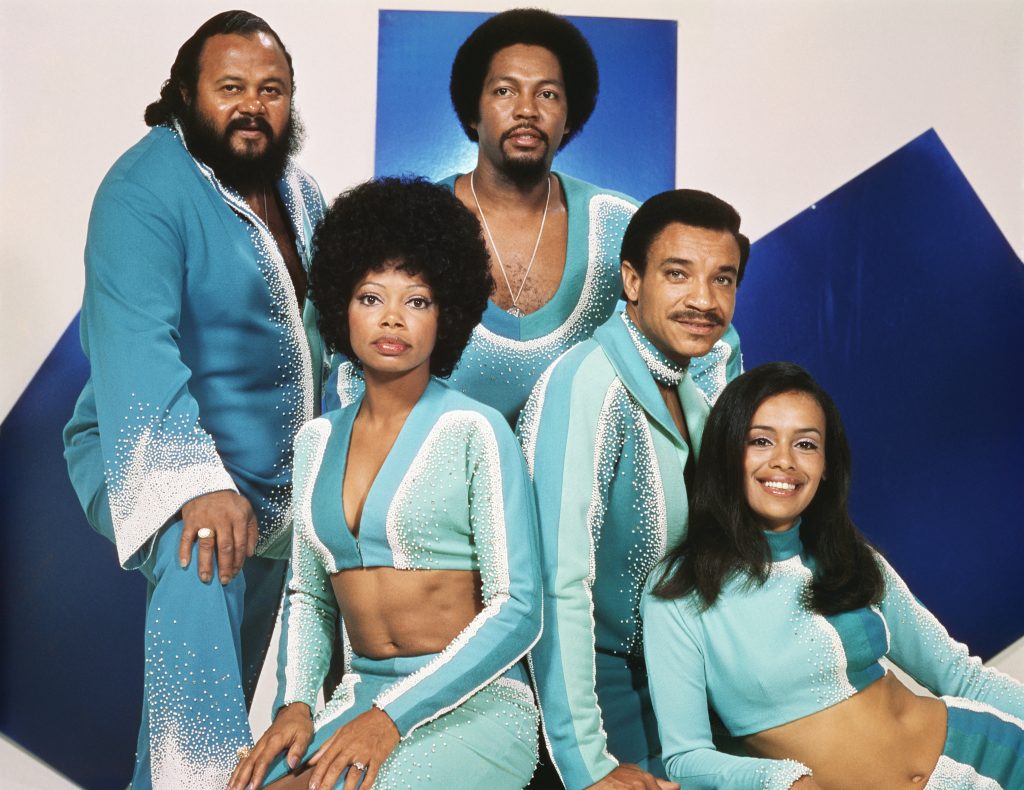Pioneers in Music and Health Awareness
- Beloved pop/soul duo Marilyn McCoo, 81, and Billy Davis Jr, 86, who found love on their rise to fame in the 1960s/1970s band The 5th Dimension, are not only early pioneers in music and entertainment, but after Billy’s prostate cancer diagnosis in 1999, the couple became early champions of health awareness, particularly in the Black community.
- Now married 55 years, the global icons — who were the first African-American married couple to host a variety TV show back in 1977 — spoke publicly about a diagnosis that wasn’t discussed so openly at that time, highlighting how the disease hits African-American men at a “disproportionate rate” compared to other groups, which unfortunately still remains true to this day.
- Prostate cancer screening guidelines released this year urge Black men to begin screening at 40 years old, which is 10 to 15 years earlier than men at average risk because according to SurvivorNet’s medical experts, they are two or three times as likely to die from this disease. Don’t delay screenings, even if you aren’t showing any symptoms.
Now married 55 years, the global icons — who were the first African-American married couple to host a variety TV show back in 1977— spoke publicly about a diagnosis that wasn’t discussed so openly at that time, highlighting how the disease hits African-American men at a “disproportionate rate” compared to other groups, which unfortunately still remains true to this day.
Read More
Marilyn then explained how important it was for them to gain knowledge about the disease, and not only talked to surgeons, but got another opinion from a radiation specialist. “We got as much information as we could on how to treat this.”
‘It Becomes Your Life’
“Nobody wants to get the news that they have cancer, you know, it hurts right away,” Billy said, “then right away you have to start thinking, ‘What should I do?’ … you have to start going to get the information, right away you have to start getting the information and researching — it now becomes your life.”
Since the cancer was thankfully caught early and had not yet spread outside the prostate, Billy chose to have a procedure called a radical prostatectomy, which was recommended by doctors at the time. (In a radical prostatectomy, doctors can often remove the prostate gland or a tumor without causing widespread injury to these nerves.) Billy did not do radiation as part of his prostate cancer treatment. He, along with Marilyn, then began educating with multiple live television appearances.
RELATED: Study Suggests Older Men Battling Prostate Cancer Are Continuously More Overtreated
“It hits African-American men at such a disproportionate rate and we feel that it’s really important to reach out to our own community as well — I’ve lost two uncles to prostate cancer,” Marilyn shared.
“It’s not just a men’s disease, because when it affects your husband, it’s a family disease,” she added. “It affects all of us.”
Marilyn McCoo and Billy Davis Jr.’s Love & Career
New Jersey-born Marilyn McCoo and Billy Davis, Jr., who hailed from St. Louis, Missouri, first met in The 5th Dimension, which formed in 1966 (founded by Billy who originally named the band The Versatiles) and skyrocketed the following year with the hit “Up, Up & Away.”
Due to the sophistication and harmonies in the band’s music, a sound not yet crafted before them, it became known as “champagne soul” among critics.

The group, which along with Billy and Marilyn included members Ron Townson, Florence LaRue and Lamonte McLemore, are also most widely known today for their 1969 album of back-to-back hits, Age of Aquarius, music famously used in an epic final dance scene of Steve Carell’s 2005 film The 40-Year-Old Virgin.
A decade after the band formed, Billy and Marilyn decided to venture on as a duo, and had an instant number one hit with their first single, “You Don’t Have to be a Star (To Be In My Show),” which won them a Grammy for Best R&B Vocal Performance By a Duo or Group.
@70s80s90sthrowback “You Don’t Have to Be a Star (To Be in My Show)” is a song popularized by the husband/wife duo of Marilyn McCoo and Billy Davis Jr., former members of the vocal group The 5th Dimension. Released from their album, I Hope We Get to Love in Time, it became a crossover success, spending six months on the charts and soaring to No. 1 on both the Billboard Hot 100 and Hot Soul Singles charts during late 1976 and early 1977.21 It also reached No. 6 on Billboard’s Easy Listening chart and No. 7 on the UK Singles Chart. It would eventually be certified gold, selling over one million copies, and winning the couple a Grammy Award for Best R&B Performance by a Duo or Group with Vocals in 1977 #70sthrowback #70sMusic #ClassicSoul #Music #Hits #RnB #ForYou #ThrowbackSongs #1970s #Nostalgia
♬ You Don’t Have to Be a Star (Live) – Marilyn McCoo & Billy Davis, Jr.
That same year, Marilyn and Billy, who grew up singing gospel music in church, went on to co-star in their own variety show in the summer of 1977 on CBS.
RELATED: ‘A Relationship Disease’ SurvivorNetTV Presents: ‘The Power of Emotional Support’
“We were the first African American married couple to host a network television series,” the pair wrote in a 2021 “#FlashbackFriday” on their joint Facebook page. “It is always so rewarding to look back at our success, and know that we experienced all of it together.”

In 2004, the couple wrote a book with the name of their first hit included in the title, Up, Up and Away…How We Found Love, Faith and Lasting Marriage in the Entertainment World, which is a marvel in itself. They married in 1969 and do not have children.
Billy and Marilyn still record music today, and released the album, Blackbird, a studio album of Beatles cover songs, in 2021.
25 years after his initial diagnosis, Billy is still cancer-free from prostate cancer.
Learning More About Prostate Cancer
Prostate cancer is the most common cancer in men. It starts in the walnut-shaped prostate gland between the rectum and bladder, producing the fluid that nourishes sperm. Fortunately, most prostate cancer is caught with screening examinations.
Prostate cancer does not always behave the same in every man it impacts. The cancer can be considered “low-risk” and can be slow-growing, and treatment might not be necessary. In other men, the cancer may grow faster or more aggressively, requiring more immediate treatment. Because of this, there is some debate about screening.
WATCH: How Gleason Grade Determines Treatment
One of the tests is the PSA test, as mentioned above. It looks for larger amounts of protein-specific antigen (PSA) in the blood. An elevated PSA test does not always mean you have prostate cancer. It could also reflect that your prostate is enlarged which is common or it could signal an infection or inflammation. Your doctor may also conduct a digital rectal exam (DRE) to check your prostate for lumps.
Depending on the results of these tests, imaging scans and a biopsy may be ordered. After tests are conducted, your doctor analyzes the results to give you a Gleason Score. This score ranges from 6 to 10. The higher the score, the more aggressive the cancer. This score, along with your other test results, helps doctors determine if your cancer is “low risk,” “intermediate risk,” or “high risk.”
Common treatment options for men with prostate cancer include:
- Surgery
- Radiation therapy
- Active surveillance
- Combination radiation therapy with hormonal therapy
- Surgery followed by radiation therapy
The reality is that most treatments are effective at curing the cancer. However, they each have different side effects that your doctors should discuss with you. We encourage and recommend that if you are diagnosed with prostate cancer, you get an opinion from a urologist (surgeon) and a radiation oncologist to hear all of your options before choosing a treatment. Since it’s common for prostate cancer to grow very slowly, some men, especially those who are older and those who have a low risk of the cancer spreading, may not need aggressive treatment, making active surveillance a viable option.
When deciding the course of treatment, we highly recommend that you get a second (or third) opinion from another institution. Given the many treatment choices, doctors at some centers may do things quite differently than others.
Screening Guidelines & Crucial Early Detection for the Black Community
The United States Preventive Services Task Force recommends men at average risk between the ages of 55-69 years old should talk with their doctor about the pros and cons of prostate cancer screening.
RELATED: Black Men May Be More Susceptible To Advanced Cancer Due to Biomarkers in the DNA Study Says
The American Cancer Society recommends that men at age 50 who are at average risk should begin screening. Men who are at high risk of prostate cancer should begin screening at age 40. Men with a close relative diagnosed with prostate cancer should consider annual screenings in their 30s.
Prostate cancer screening guidelines released this year now urge Black men to begin screening at 40 years old, which is 10 to 15 years earlier than men at average risk.
“Prostate cancer affects men of all walks of life but it affects them differently,” says Dr. Edwin Posadas, Director of Translational Oncology and the Medical Director of the Urologic Oncology Program at Cedars-Sinai. “For example, the incidence of prostate cancer in African-American men is 60 percent higher, and they are two to three times more likely to die from the disease.”
Staggeringly Higher Prostate Cancer Rates for Black Men
The National Cancer Institute says among Black men, death rates are higher or “more than twice” that of white men, sparking increased efforts to boost early detection for this demographic.
Prostate Cancer Symptoms
Symptoms of prostate cancer may include:
- Urinating more often
- Urgency (having to go multiple times) in the middle of the night
- Blood in your urine
- Trouble getting an erection
- Pain or burning when you urinate
- Pain in your back, hips, thighs, or other bones
- Unexplained weight loss
- Fatigue
It is important not to delay screenings even if you are not experiencing symptoms.
Questions for Your Doctor
If you have experienced symptoms associated with prostate cancer or have a screening coming up, here are some questions you may ask your doctor:
- If I have elevated prostate-specific antigen (PSA) levels, what could be causing that besides cancer?
- How long will it take to learn if my PSA levels warrant further testing?
- What are the treatment options that are best suited for me based on my risk level?
- What financial resources exist to help me with the costs associated with treatment?
- How long will my potential treatment prevent me from working or continuing normal activities?
Contributing by SurvivorNet staff.
Learn more about SurvivorNet's rigorous medical review process.

